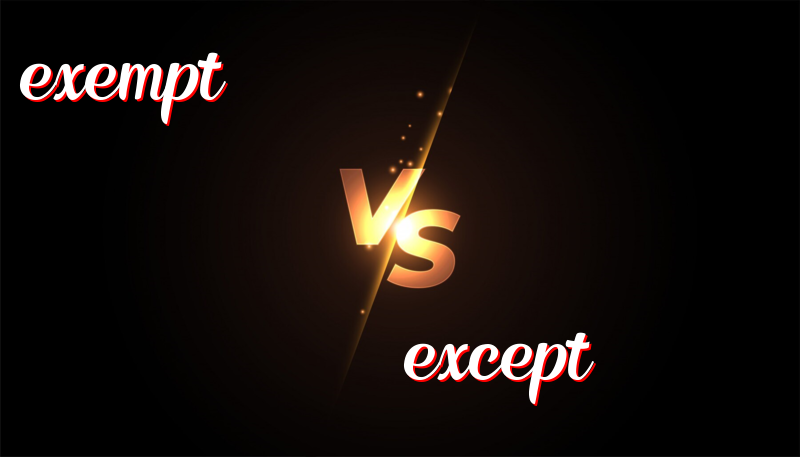The “E” Word Confusion: Exempt vs. Except
Exempt vs. Except: Understanding the Difference
Sometimes, words in English sound alike but mean different things. “Exempt” and “except” are such words. Let’s learn what they mean, where they come from, and how to use them.
What Does “Exempt” Mean?
“Exempt” means someone or something does not have to do a rule or a law. It comes from old French and Latin words that mean “take out.” If you are exempt, you don’t have to follow a particular rule.
How to Use “Exempt”
- She is exempt from paying the fee.
- Students are exempt from the exam if they are sick.
- My dog is exempt from the leash law because he is well-trained.
- The old car is exempt from the new emission rules.
- Small businesses are exempt from certain taxes.
What Does “Except” Mean?
“Except” means to leave out or not include. It comes from Latin words that mean “take out.” In a sentence, “except” shows that something does not fit with the rest.
How to Use “Except”
- Everyone came to the party except Tom.
- The store is open every day except Sunday.
- All the kids were playing outside except for Jane.
- I like all fruits except bananas.
- We will go swimming every day except when it rains.
Trick to Remember the Difference
Here is an easy trick: “Exempt” ends with a “p,” which can remind you of “passes,” meaning you get a pass from doing something. “Except” sounds like “accept,” but means something is not included.
Summary
“Exempt” means not having to follow a rule. “Except” means leaving something out. Remembering the “p” in “exempt” for “passes” can help you not mix them up.

Leave a Reply
You must be logged in to post a comment.